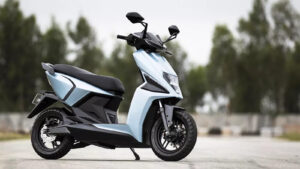Kick scooters have become an integral part of urban commuting and recreational activities, offering a convenient and eco-friendly way to navigate through the bustling streets.
While the scooter’s frame and handlebars are essential, one often overlooked component that significantly influences the riding experience is the kick scooter wheels.
In this article, we delve into the world of kick scooter wheels, exploring their importance and providing insights into choosing the perfect set for your scooter.
Importance of Kick Scooter Wheels
- Ride Smoothness: The wheels play a crucial role in determining how smoothly your kick scooter glides over various surfaces. High-quality wheels with the right composition can absorb shocks and vibrations, providing a more comfortable ride.
- Durability: The durability of the wheels is paramount, especially for those who use kick scooters regularly. Quality wheels can withstand the wear and tear of daily commuting or recreational riding, ensuring a longer lifespan for your scooter.
- Grip and Traction: The level of traction and grip your scooter wheels provide is essential for both safety and control. Optimal traction allows for better maneuverability, especially when navigating turns or uneven terrain.
- Material: Kick scooter wheels come in different materials, with common options including polyurethane, rubber, and plastic. Polyurethane wheels are popular for their durability and shock absorption properties, making them suitable for various riding conditions.
Choosing the Right Kick Scooter Wheels
- Size and Diameter: Kick scooter wheels come in various sizes, typically measured in millimeters. Larger wheels generally offer a smoother ride and are better suited for longer commutes, while smaller wheels provide increased maneuverability. Consider your riding preferences and the type of terrain you’ll encounter when selecting the size.
- Durometer Rating: Durometer rating indicates the hardness of the wheel. Softer wheels (lower durometer) provide better shock absorption, making them suitable for rough surfaces, while harder wheels (higher durometer) offer increased speed on smoother pavements.
- Core Design: The core of the wheel affects its overall performance. Cores can be solid or spoked, with each design influencing factors such as weight, speed, and durability. Consider your priorities in these aspects when choosing a wheel core.
- Compatibility: Ensure that the wheels you choose are compatible with your kick scooter’s axle size. Most kick scooters have standard axle sizes, but it’s essential to verify compatibility to avoid any installation issues.
Conclusion
In the world of kick scooters, the wheels are the unsung heroes, contributing significantly to ride comfort, durability, and overall performance.
By understanding the key factors mentioned above and aligning them with your specific riding preferences, you can make an informed decision when choosing the perfect set of kick scooter wheels, unlocking a smoother, safer, and more enjoyable riding experience.



